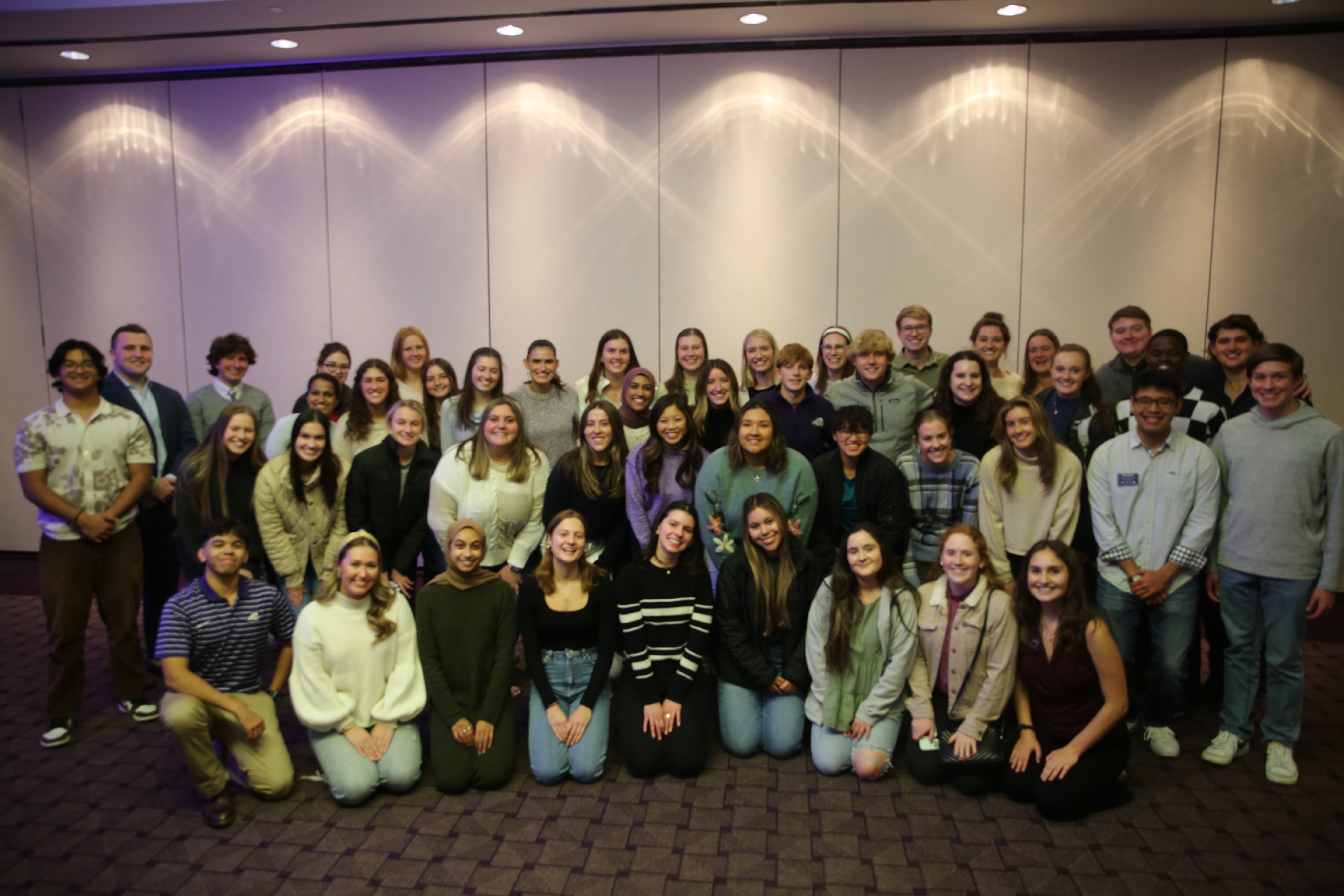
Creating connections is one of the most important values in the John V. Roach Honors College, yet it was challenging for students to foster these connections during the COVID-19 pandemic. Marina Magnant ’24 is an international student from Portugal. During the pandemic, she was taking classes remotely nearly 5,000 miles away from TCU. “The best classes I had were my Honors classes. I felt there was a need, especially being in Portugal and feeling the effects of COVID so harshly, for more connection within the Honors College. Because we have those connections in class, but outside class I didn’t see that,” Marina shared.
Pitching the Program
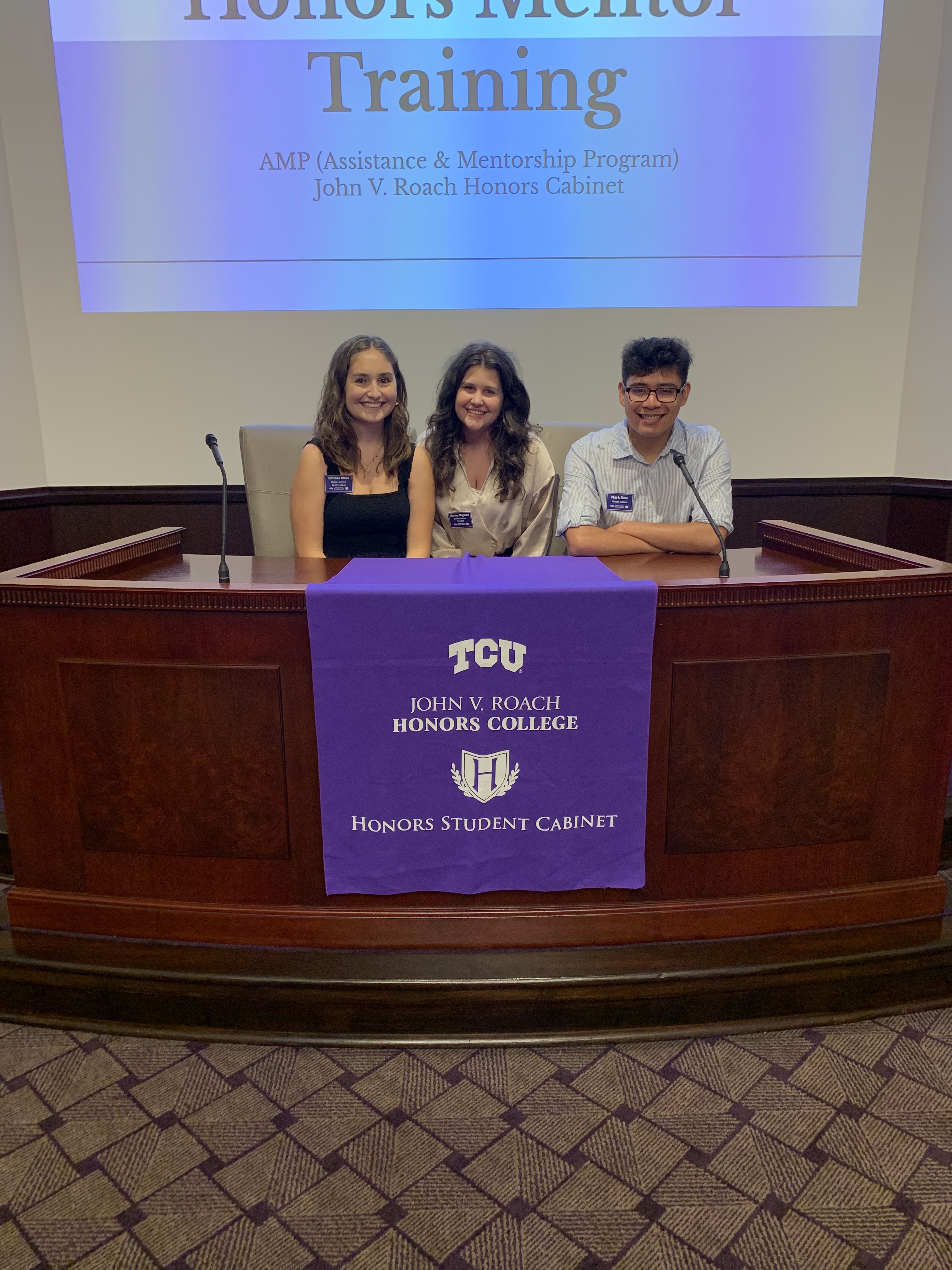
Marina joined the Honors Student Cabinet, an organization that serves as the voice for students within the college, in fall 2020. She pitched her idea for a mentorship program that would connect first-year and upper-class students. Sabrina Rizzo ’24 and Mark Rose ’24, Cabinet members who were first-year students at the height of the pandemic, helped draft the initial proposal that outlined their concept for the project.
“I had my fellow Honors students in Milton, but outside of Milton I didn’t feel as plugged in with what was going on,” said Sabrina. “This was the gap in my Honors experience I felt I was missing; one I noticed my peers were missing as well.”
When they pitched the idea to Dean Ron Pitcock in spring 2021, he thought it was a good idea, but proper implementation was not feasible at that time. He’d witnessed similar programs within the college fail in the past due to a lack of proper planning and structure.
The Cabinet took this constructive feedback and began working to lay a strong foundation for a mentorship program that would stand the test of time. In the meantime, Dean Pitcock suggested finding a middle ground that wasn’t a full-fledged mentoring program, but an event that could still foster connections in the college.
Dedicated Research
From this, the College Showcase was born. This event brings academic leaders and upper-class students into Milton Daniel, the Honors residence hall, to conduct a Q&A session with students. In fall 2021, the Cabinet used survey data after the event to gauge its success, and a resounding 90% of survey respondents expressed interest in a peer mentoring program. Throughout the 2021-22 academic year, the Cabinet learned from other programs on campus and across the U.S. to see how they could coordinate a successful program of their own.
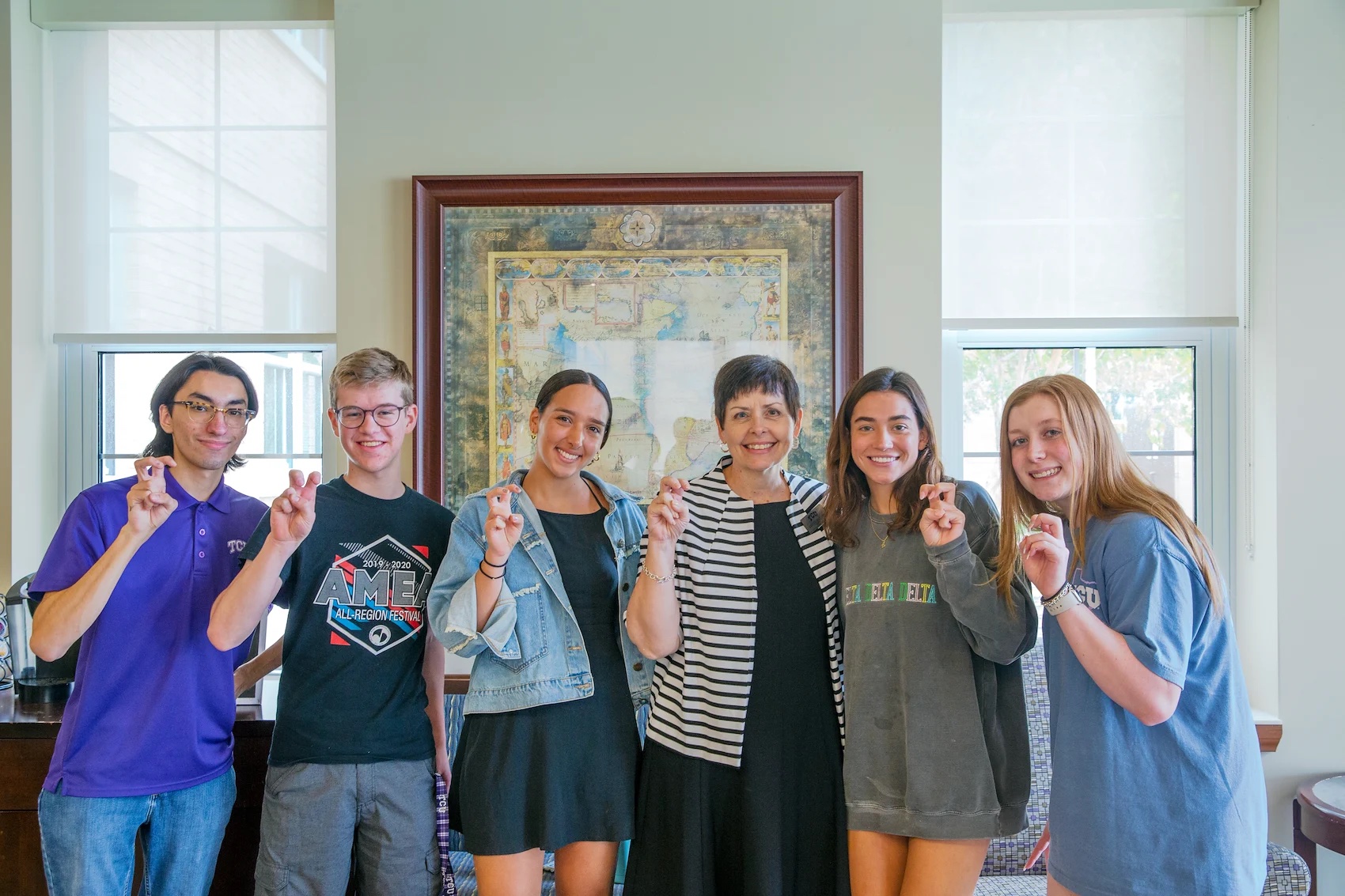
Armed with data and research, Marina, Mark and Sabrina went back to Dean Pitcock and proposed a flushed-out mentoring program. Due to the hard work and dedicated research that went into building a strong foundation, Dean Pitcock approved the program in spring 2022.
“I’m really glad that Dr. P. made us go through this process – to think about the program and cultivate it,” commented Mark. “It’s pretty much like taking a bucket and filling it with water to see if there are any leaks, then plugging any holes and stress test to determine if there are further problems, flaws or things we were overlooking.”
Matching Mentors and Mentees
The Cabinet received an overwhelming number of applications to the program in its inaugural year and was intentional about keeping the first class small allowing them the bandwidth to support mentors and mentees with the highest quality of attention. Ultimately, 68 total students, 29 mentors and 39 mentees, were selected.
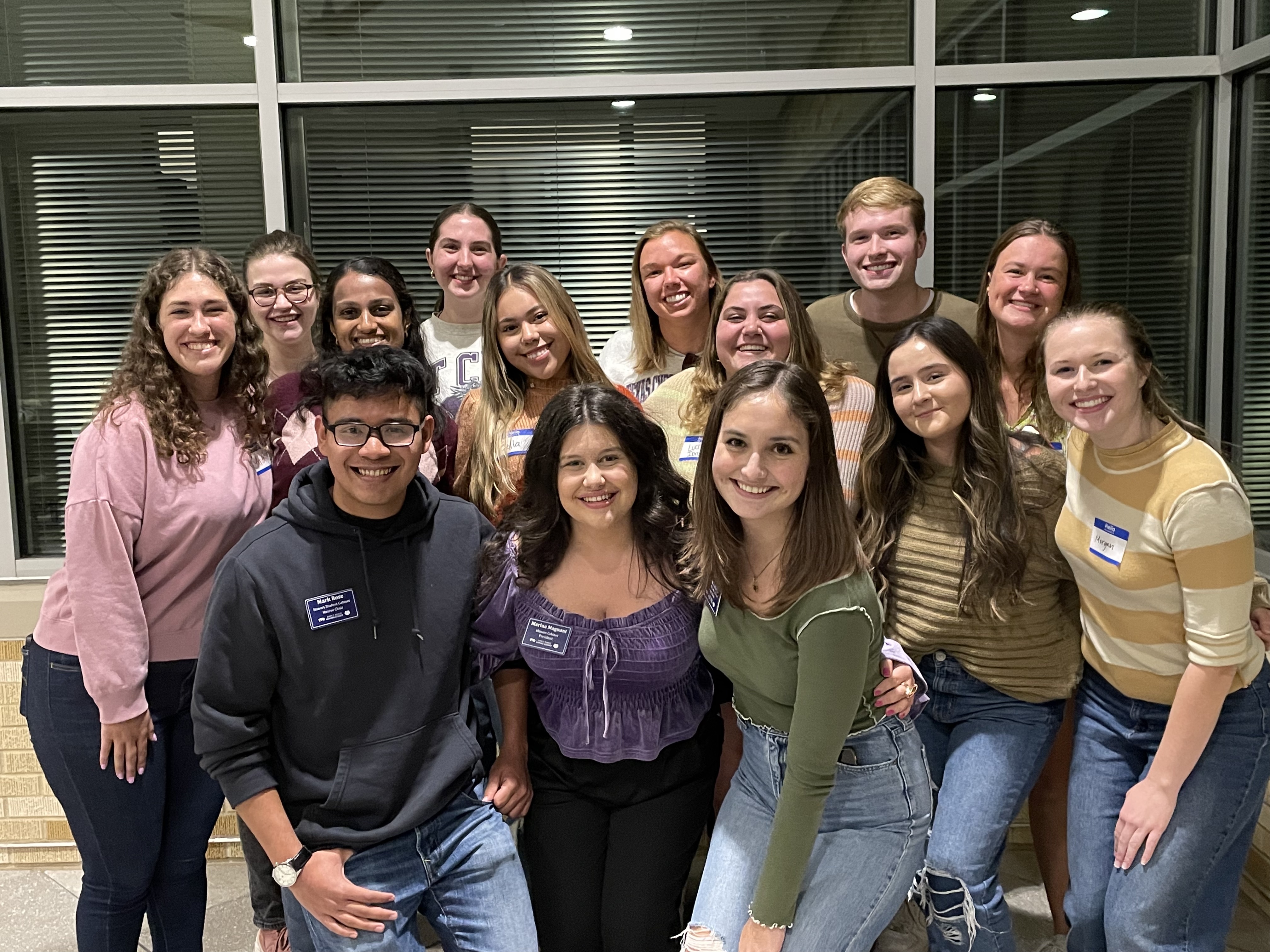
With tremendous purpose, the Cabinet matched mentors and mentees based on academic interests. “We wanted to give them personalized resources that will impact their journey at TCU in a personal, academic and professional way, so we paired mentors and mentees by area of study,” said Marina. “Sabrina, Mark and I spent over six hours matching people because we wanted participants to create those relationships and help them get the most out of the program.”
Genuine Connections and Lifelong Friendships
Mentees and mentors were encouraged to meet up at least once a month, yet many mentees said they kept in touch with their mentors more frequently. As Mark put it, “We don’t mind if their mentor is a plan A or even a plan D, we just want mentees to know they have someone they can talk to.”
The mentors and mentees are also part of groups with seven or eight other students with similar academic interests. For example, there is a pre-law mentor group where students vary in major, but each student has expressed an interest in attending law school. “This mentorship program doesn’t only connect first-year students with a sense of community, but mentors too,” said Mark. “Some mentors didn’t even know they were in Honors together; it helped cultivate different connections with upperclassmen.”
“We want everyone to feel like Honors is a continuity and not just a first-year experience. I want students to feel established in the Honors community,” commented Sabrina. “I want them to know other people in the college and feel a sense of camaraderie in Honors.”
Marina, Mark and Sabrina are proud to witness their idea come to fruition, expressing it has been “incredible to be a part of something that is growing the learning community in the Honors College. The mentors and mentees are the heart of this program, and the program wouldn’t beat without them.”
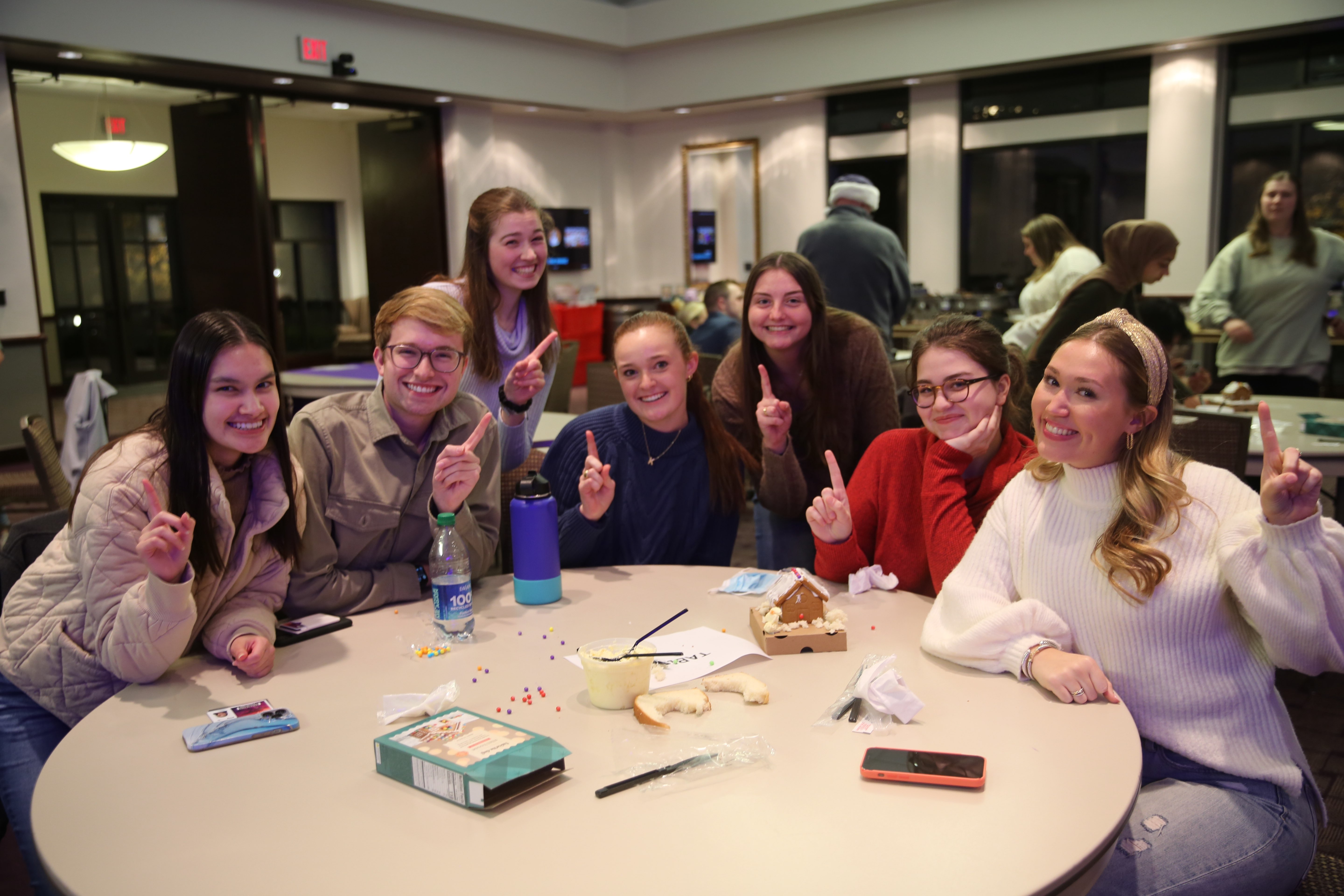
Read more stories from the Honors Mentor Program: